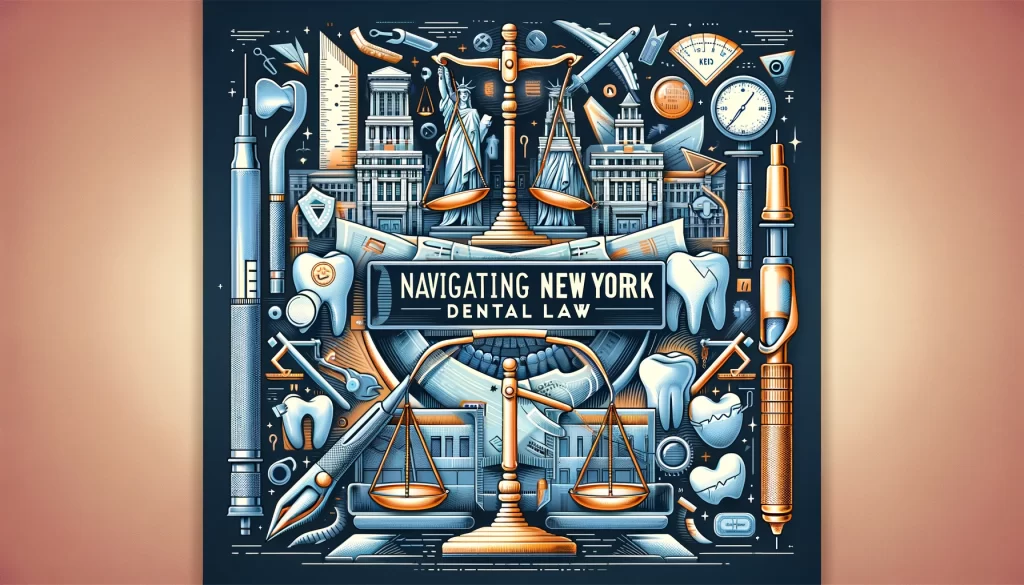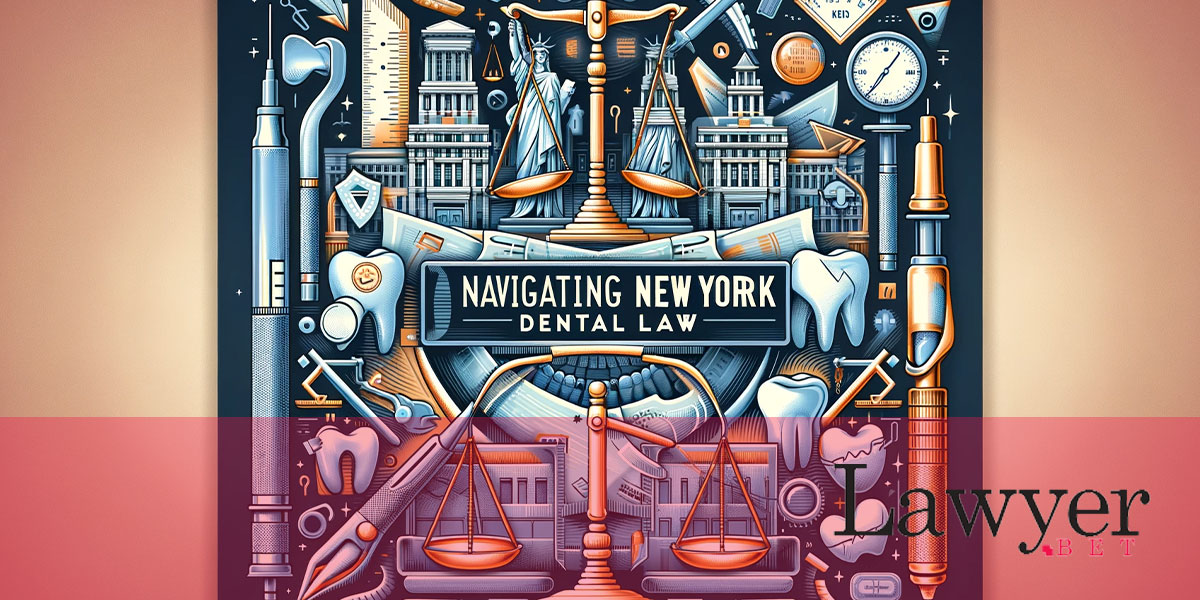Demystifying New York Dental Legislation
Practicing dentistry in New York involves adhering to a set of stringent rules and standards aimed at upholding top-notch patient care and professional ethics. For legal professionals specializing in New York dental law, a deep understanding of these regulations is essential to provide reliable guidance to dental practitioners. This all-encompassing manual delves into the essential facets of dental laws in New York, covering licensing, practice requirements, patient rights, and professional behavior to equip legal advisors with the necessary knowledge to effectively navigate through these intricate regulations.
Requirements for Licensing Dentists in New York
The path to obtaining a dentist’s license in New York is rigorous and demanding, reflecting the state’s dedication to excellence in dental services. Prospective dentists must satisfy various criteria, including educational qualifications, passing comprehensive exams evaluating theoretical knowledge and clinical expertise, and adhering to ethical standards.
Educational and Examination Criteria
An extensive dental education, coupled with successful completion of a series of exams assessing both knowledge and practical skills, serves as the fundamental prerequisite for aspiring dentists in New York.
Continuous Education and Skill Development
After obtaining a license, dentists must actively engage in ongoing educational activities and professional development to ensure their practice aligns with current care standards and technological advancements in dentistry.
Compliance with Regulations and Practice Standards
New York enforces strict guidelines governing dental practice operations, encompassing aspects ranging from patient safety protocols to the utilization of dental materials and technologies, guaranteeing top-tier patient care.
Patient Safety and Infection Prevention
Central to any dental practice is a stringent approach towards patient safety and infection control, with specific protocols dictating instrument sterilization and clinical environment management.
Confidentiality and Patient Data
Adhering to privacy laws, particularly concerning the handling and safeguarding of patient records, is crucial in dental practice within New York, ensuring patient information remains secure and maintaining trust.
Professional Behavior and Ethical Standards
The integrity of dental practice in New York is upheld via stringent codes of professional conduct and ethical guidelines, steering dentists in their interactions with patients, peers, and the community.
Addressing Professional Misconduct
In instances of professional misconduct, New York lays out clear steps for investigation and disciplinary action to safeguard the standards of dental practice rigorously.
Supporting Patient Rights
Essential to the core values of dental practice is advocating for patient rights, where dentists and legal experts collaborate to ensure patients are well-informed, consenting, and receiving care that aligns with legal and ethical standards.
In Closing: Upholding Dental Practice Standards in New York
The terrain of dental law in New York is intricate, mirroring the state’s unwavering dedication to superior dental health and patient care. A profound comprehension of these laws is imperative for legal advisors working in this field. This guide serves as a foundational overview, emphasizing the necessity for continuous learning and engagement within the dental community to stay informed about the dynamic changes in this legal sphere.

Mastering NYC Dental Regulations: Vital Insights
Decoding NYC Dental Guidelines
Being a dental professional practicing in New York City necessitates a deep understanding of the regulations governing the industry. NYC has distinct rules and guidelines that all dental practices must abide by to ensure compliance and deliver top-notch care to patients.
Crucial Regulations to Keep in Mind:
- Licensing Requirements: Dentists, dental hygienists, and dental assistants must hold a valid license from the New York State Education Department to practice in NYC.
- Adherence to Infection Control Practices: Dental offices must adhere to stringent sterilization and disinfection protocols to prevent infections.
- Maintenance of Patient Records: Dental practices must maintain accurate and updated patient records in compliance with HIPAA regulations.
- Ensuring X-ray Safety: Implementation of proper safeguards to protect patients and staff from unnecessary radiation exposure during X-ray procedures.
- Accurate Insurance Billing: Dental practices must bill insurance companies ethically and accurately to steer clear of fines and penalties.
Advantages of Compliance:
By mastering NYC dental regulations, dental professionals can ensure the safety of their patients and staff, evade legal issues, and uphold a positive reputation within the community.
Practical Compliance Tips:
- Stay updated on regulatory changes by participating in continuing education programs and workshops.
- Establish written policies and procedures for your practice to ensure consistent compliance.
- Conduct regular audits of your practice to pinpoint areas of non-compliance and address them promptly.
Case Study:
Dr. Smith, a dentist in NYC, recently invested in new sterilization equipment to comply with updated infection control regulations. Consequently, her practice witnessed increased patient satisfaction and referrals.
Personal Experience:
As a dental hygienist in NYC, I have found that staying updated about dental regulations is pivotal to providing quality care




